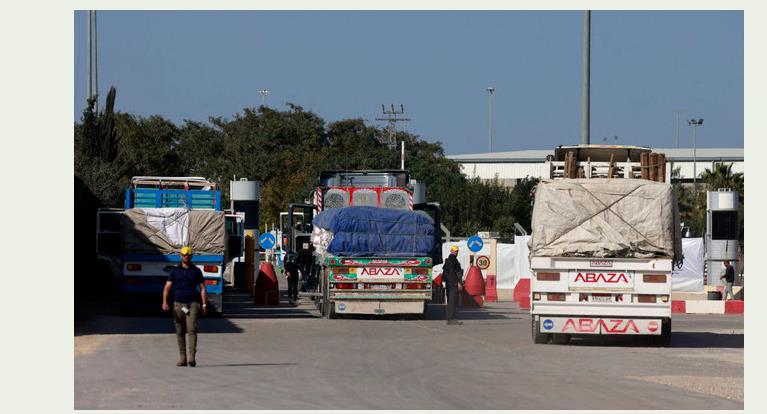
It appears that US President Joe Biden would like to spend fewer resources in the Middle East and shift more attention to other parts of the world. However, the Middle East remains important to US interests, despite a desire in Washington to focus more on Asia-Pacific and Europe.
Several presidents, including Donald Trump and Barack Obama, have tried to decrease US involvement in the Middle East without much success. Nonetheless, proponents of a reduced US role in the region are gaining momentum among foreign policy influencers in Washington.
Supporters of a significantly reduced US role come from the right and left of the political spectrum and represent a range of worldviews. Some proponents of a smaller US footprint in the Middle East still share a worldview that advocates an active US role, but they want to shift focus to other regions. Others promote restraint or retrenchment, arguing that America should not play an assertive global role but should rather significantly scale back its overall involvement in the world. This idea comes from the political left and right but reflects Trump’s “America First” idea to some extent, suggesting that the US should focus much more on its domestic needs and its own borders.
Proponents of a slimmed-down or zeroed-out US role in the Middle East also draw on a range of other arguments. They point out that the US no longer needs Middle Eastern oil, while progressives argue that the world should be moving away from fossil fuels altogether. There is a sense that Islamist terrorism no longer poses a serious threat to America, with some adding that Washington should focus more on domestic terrorism. The electoral salience of taking actions in the region to support Israel has eroded, at least for many Democrats. Critics argue that US partners in the Middle East are not aligned with American values or interests. Underlining these views is a sense that US policies in the Middle East have failed — that they cost too much in blood and treasure, while accomplishing little and often making things worse.
While these perspectives have increasing influence in Washington, other foreign policy professionals disagree. Although there is almost no support for the type of state-building attempted under the Bush years in Iraq, there is still support for an active US role in the region. The US no longer relies on Middle Eastern oil, but the secure flow of oil remains critically important to the global economy, of which the US is a part. And terrorism remains a significant concern. Experienced foreign policy professionals remember that many in Washington did not see Islamist terrorism as a major threat before the 9/11 attacks and remember that many people declared Al-Qaeda and Islamist terrorism more broadly dead, and then Daesh emerged. Washington should not assume that Islamist terrorism cannot regain strength. Nuclear proliferation remains a major concern as well.
It is also less expensive and more efficient for the US to use diplomatic, military, intelligence and economic resources to maintain partnerships to ensure the security of global trade, respond to terrorist threats, and manage other potential concerns. Pulling back now risks it having to spend far more resources to respond to future emergencies. Furthermore, proponents of an ongoing US role in the region view key partnerships as valuable to the country. There is disagreement about which countries matter most and how the US should manage those relationships. It is easier to maintain partnerships than to rebuild them once they are broken.
Biden and his top foreign policy officials believe in the importance of an active US global role and do not embrace the ideas of retrenchment. However, Asia-Pacific, Europe and the Western Hemisphere are their top priorities. Biden has talked about the importance of rebuilding alliances, but he prioritizes traditional alliances with democratic countries in Europe and the Asia-Pacific region. The administration’s top goal in the Middle East is to contain Iran’s nuclear program.
While Biden might prefer to spend less time on the Middle East, he and his team are well aware of the problems associated with the Obama administration’s efforts to pivot to East Asia. The Biden team is likely to take a more nuanced approach that seeks to address risks in the Middle East while minimizing the use of US resources. As last month’s airstrike in eastern Syria demonstrated, Biden is willing to use force in a targeted way, while also emphasizing diplomacy. The White House wants to maintain US partnerships in the region while also expressing frustration with its partners.
The Biden team is likely to take a nuanced approach that seeks to address risks in the region while minimizing the use of US resources.
Kerry Boyd Anderson
The US is a global power. Although it has limited resources, it is capable of managing multiple priorities in different regions, including the Middle East. It is important for the Washington foreign policy community to regularly question and re-evaluate US interests, policies and relationships in the Middle East — and to question the costs and benefits to Americans and to the people of the region. It is particularly important to frequently consider the purpose and costs of using military power. However, those who argue that the Middle East is no longer important to the US ignore the lessons of history and the reality of the present.
Kerry Boyd Anderson is a writer and political risk consultant with more than 16 years" experience as a professional analyst of international security issues and Middle East political and business risk. Her previous positions include deputy director for advisory with Oxford Analytica and managing editor of Arms Control Today. Twitter: @KBAresearch
Disclaimer: Views expressed by writers in this section are their own and do not necessarily reflect Arab News" point-of-view











